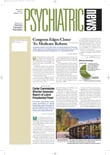‘Hospital Food’
We lower a plastic tray on his ribsas if food can stop the dying:cold potato scooped like a snowball,canned spinach oozing green,microwaved chicken thigh.I’ve watched anorectic men clogN-G tubes with brown riceand Kombacha mushroom tea,listened to wives pleadjust make him take a few bites,withstood lectures on macrobioticsdelivered by a Camel chain smoker.No, I’ve never seen hospital foodstop the dying.Some days, worn and hungry,I take refuge in smooth noodlesglistening black beans and red chilis,fragrant sips of jasmine tea,sweet white sesame balls the size of prayers.And I think about the sick mendissolving like tailpipes in the sea,what they long to devour,how we die without appetiteand the way we live with hungersthat consume our hearts like another kind of dying.
Information & Authors
Information
Published In
History
Authors
Metrics & Citations
Metrics
Citations
Export Citations
If you have the appropriate software installed, you can download article citation data to the citation manager of your choice. Simply select your manager software from the list below and click Download.
For more information or tips please see 'Downloading to a citation manager' in the Help menu.
There are no citations for this item
View Options
View options
PDF/ePub
View PDF/ePubGet Access
Login options
Already a subscriber? Access your subscription through your login credentials or your institution for full access to this article.
Personal login Institutional Login Open Athens loginNot a subscriber?
PsychiatryOnline subscription options offer access to the DSM-5-TR® library, books, journals, CME, and patient resources. This all-in-one virtual library provides psychiatrists and mental health professionals with key resources for diagnosis, treatment, research, and professional development.
Need more help? PsychiatryOnline Customer Service may be reached by emailing [email protected] or by calling 800-368-5777 (in the U.S.) or 703-907-7322 (outside the U.S.).
